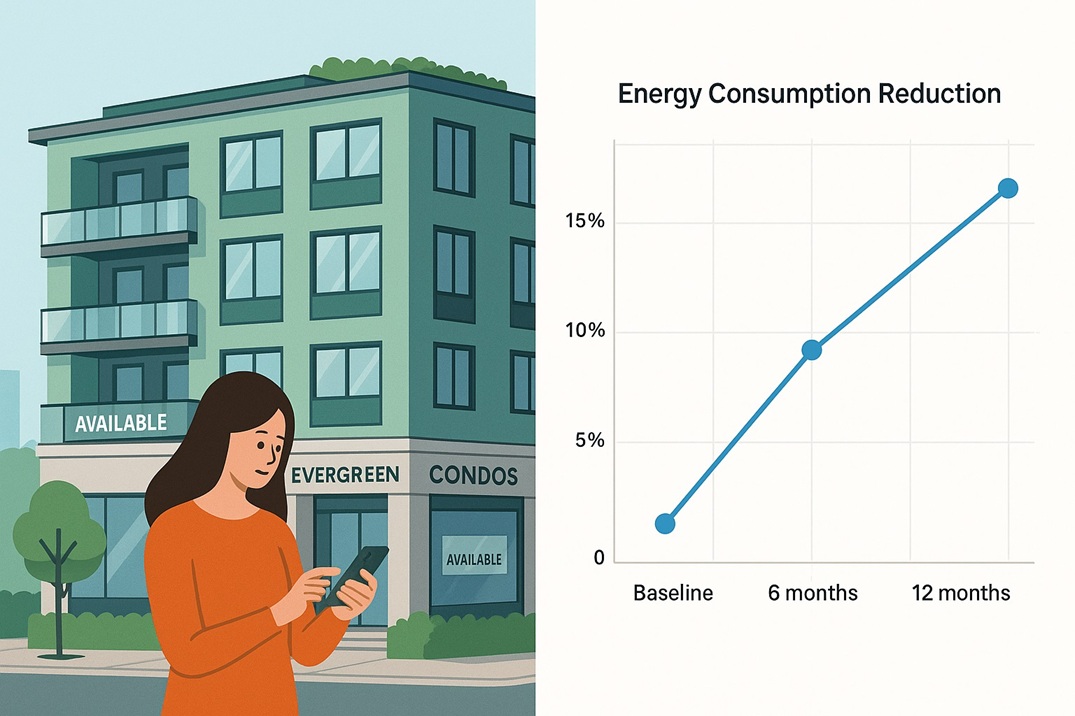Case Studies
Case Studies
Explore how our AI-powered solutions could transform residential housing in Canada through realistic pilot scenarios designed for ESG compliance, smart optimization, and digital transformation. Each conceptual model is crafted based on recurring challenges in the Canadian residential landscape and showcases the practical value of AI Home Optimizer’s capabilities.
1. Urban Co-Living Efficiency Pilot (Toronto)
Scenario Type: Conceptual Pilot
Property Type: Mid-rise co-living residential complex
Challenge: The building suffered from uneven usage of shared amenities—such as kitchens, lounges, and laundry rooms—leading to frequent overcrowding in peak hours and disuse at other times. Additionally, residents raised concerns about excessive energy usage and a lack of scheduling transparency.
Our Solution: We modeled a deployment of our occupancy tracking system integrated with mobile-based booking and behavior analysis. AI-powered recommendations helped redistribute usage, while visual alerts encouraged low-usage hours.
Expected Impact:
- 30% improvement in shared space usage distribution
- 15% reduction in peak-hour energy waste
- Reduction in resident complaints and better planning of facility upgrades

2. Energy Optimization in Affordable Housing (Halifax)
Scenario Type: ESG-Oriented Pilot Concept
Property Type: Public housing complex with centralized heating
Challenge: Units were heated uniformly regardless of occupancy or weather conditions, resulting in unnecessary energy consumption. The facility lacked the capacity to segment heating schedules or analyze usage patterns, leading to inefficiencies and elevated operational costs.
Our Solution: We simulated the implementation of AI-driven thermal zoning and behavior-linked occupancy tracking. The system provided adaptive heating schedules, tenant-level dashboards, and predictive maintenance alerts for HVAC systems.
Expected Impact:
- 22% projected savings in heating energy consumption
- Enhanced ESG reporting capability aligned with Nova Scotia regulations
- Empowered tenants to participate in energy-saving behaviors through visual feedback

3. Multi-Tower ESG Dashboard Integration (Vancouver)
Scenario Type: Institutional Use Case Model
Property Type: Mixed-use residential towers owned by a real estate development firm
Challenge: The client managed more than ten high-rise buildings but had no centralized platform to track energy usage, indoor air quality, or emissions data in real time. Manual ESG reports were delayed, inconsistent, and resource-intensive to compile.
Our Solution: We proposed a multi-building ESG dashboard system that aggregates key metrics across all towers. The model included role-based access for asset managers, ESG officers, and auditors, enabling standardized compliance, benchmarking, and data exports.
Expected Impact:
- 80% reduction in ESG reporting time
- Real-time visibility into building performance and compliance status
- Strategic insights for green investment decisions and building certification readiness

Bring These Scenarios to Life
Each case study is based on realistic challenges and reflects our readiness to deploy AI Home Optimizer in diverse residential settings. Whether for small-scale pilots or city-wide smart housing initiatives, our solutions are scalable, measurable, and tailored for Canadian ESG frameworks.Schedule a Pilot Consultation

